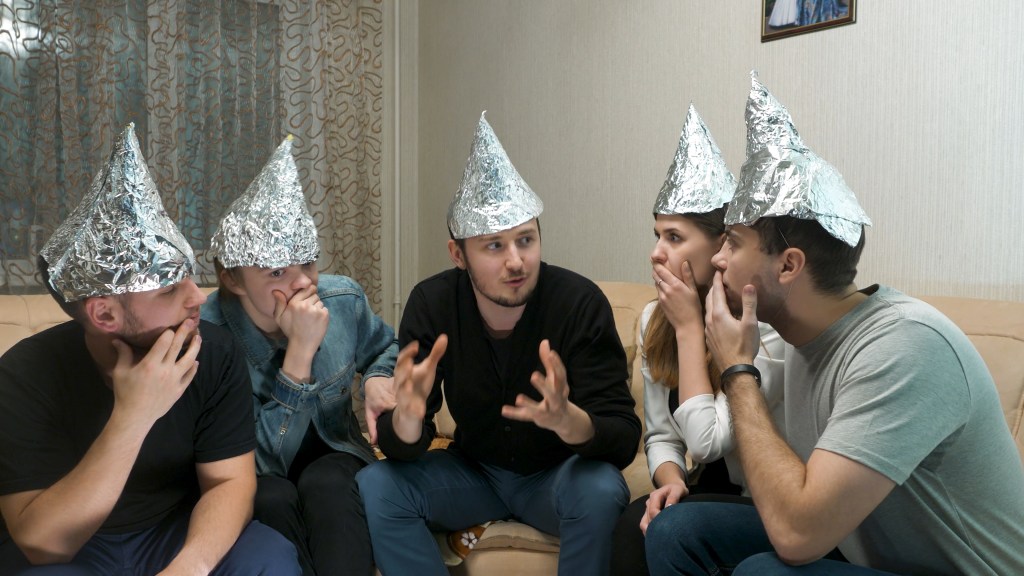People who trust their gut are suckers for ‘bulls–t’ conspiracy theories: scientists
If you trust your gut when deciding if a statement is true or false, maybe that’s just because lizard aliens are running the country.
Research into what makes a person accept new information as true or false has revealed that facts and reality are rather slippery concepts.
In a pair of new studies, behavioral scientists investigated the relationship between “truth relativism” — the concept that truth and reality are different to different people — and the risk of falling victim to false information.
“I think many people who emphasize a more relativistic view of what truth is mean well,” Julia Aspernäs, Ph.D. student in the Department of Behavioral Sciences and Learning at Linköping University in Sweden, said in a statement.
“They believe that it’s important that everyone should be able to make their voice heard. But these results show that such a view can actually be quite dangerous,” Aspernäs added.
The study found that there are two types of truth relativism: One is called cultural relativism, in which the beliefs held by a culture or group of people must be true, because everyone in the group believes them.
The other is called subjective relativism, in which individuals are convinced that whatever they personally feel to be true must therefore be the truth.

The research team surveyed about 1,400 people in Sweden and the UK about their views on what truth is. They then were asked to take a position on various conspiracy theories, and to assess the content of a number of nonsense sentences.
The researchers also collected information on factors like the ability to reason analytically, political orientation, age, gender and educational level.
Their studies, published in the Journal of Research in Personality under the compelling title “Misperceptions in a Post-truth World: Effects of Subjectivism and Cultural Relativism on Bulls – – t Receptivity and Conspiracist Ideation,” reveal some interesting conclusions.

People who believe the truth is subjective and individual are more likely to believe conspiracy theories, and to hold onto their conspiratorial beliefs even when faced with real-world evidence and facts that contradict their conspiracy theories.
People with a subjective worldview also have a greater tendency to find profound, meaningful messages in nonsense blather, such as “The hidden meaning transforms the abstract beauty.”
And for people with a cultural belief system, cultural relativism was found to be linked to “bulls – – t receptivity,” or the ability to gladly accept “nonsense from someone attempting to persuade or impress without concern for what is true or false.”

The researchers believe their study has immediate relevance, particularly as the US starts to enter another election cycle.
“[T]he results are useful when listening to political debates, such as those concerning schooling. People may have different opinions on matters of fact, but behind this may lie a fundamental disagreement about how the world works and what even exists,” they wrote.
“I got the idea when listening to [political] debates about whether students should learn factual knowledge or be encouraged to themselves seek out what they think is true,” said Aspernäs.
“It sounded like the debaters had completely opposite assumptions about what truth is and argued that their own approach was the best way to help students become critical thinkers,” she added.
“[W]e see that truth relativism seems to be linked to a greater belief in misleading information. It may be important to keep that in mind.”
This article has been archived for your research. The original version from New York Post can be found here.


